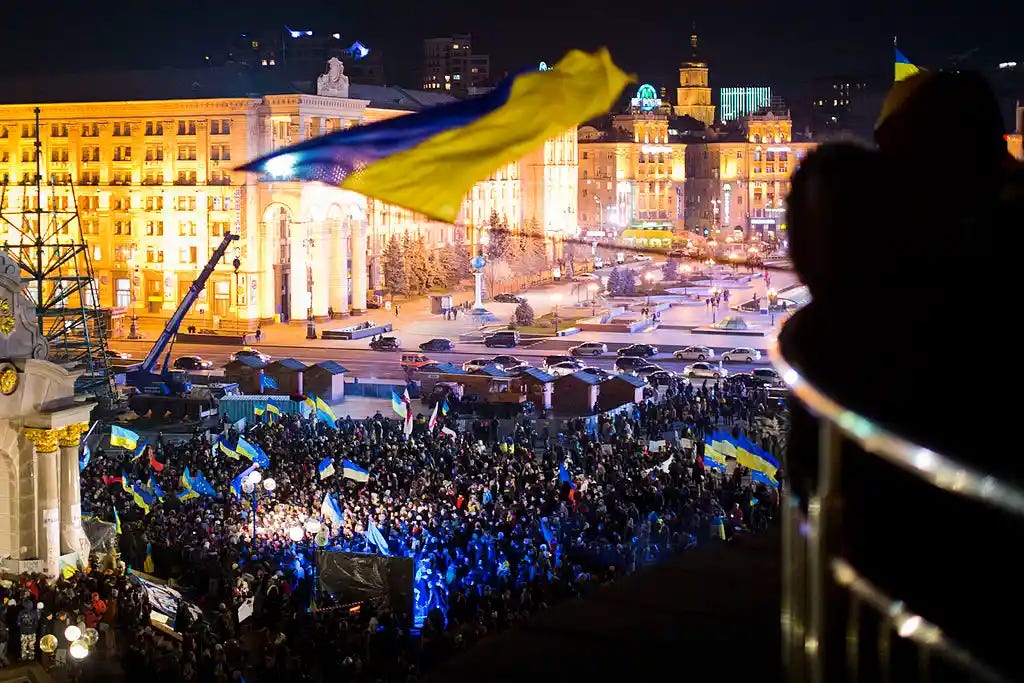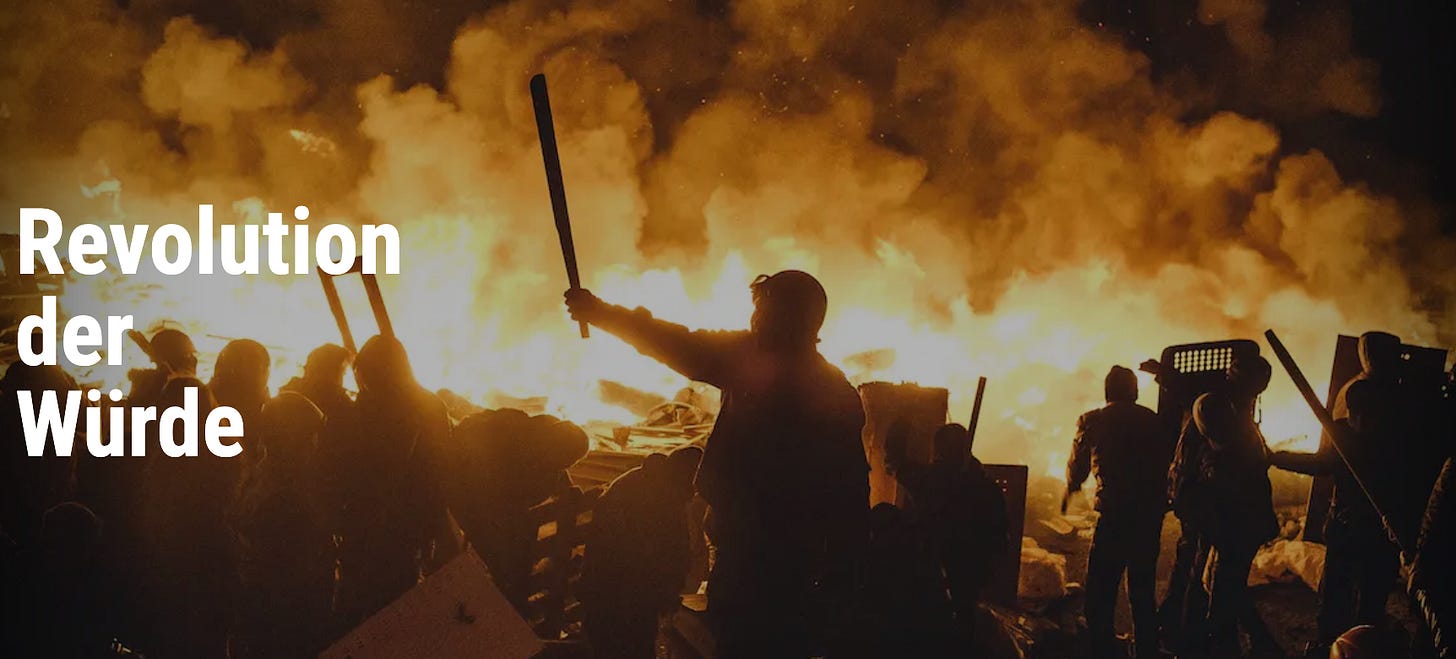A week of tragic anniversaries.
From Euromaidan to Russia's invasion of Ukraine, we have reason to look back, not just to remember what happened, but to understand what lies ahead.
This is a week of tragic anniversaries.
On 22 February 2014, after three months of protests, the Revolution of Dignity succeeded in removing Ukraine's President Yanukovych from office. In Western Europe, these protests are known as the Euromaidan. Yanukovych's forced flight to Russia left a power vacuum that became a catalyst for further unrest.
A few days later, on 27 February, Russian troops seized strategic sites in Crimea, followed by the installation of a pro-Russian government and the annexation on 18 March 2014.
Since then, eight years of tension and sanctions, dialogue and war, with the Luhansk and Donetsk regions as battlegrounds, have claimed thousands of lives and displaced many more. All this has often been ignored or played down by European policymakers.
Two years ago, on 24 February 2022, Russia invaded Ukraine.
The Maidan uprising, with its aspirations for a European future, seemed a distant memory, eclipsed by the brutal reality of war. But for most Ukrainians, those days ten years ago marked the beginning of a war of which the last two years have been the final and most decisive chapter. For the future of this continent too.
The Euromaidan through the eyes and words of the protagonists and read written, video and photographic material.
The Kyiv Independent.
◼︎ Explaining Ukraine: the Euromaidan Revolution. The sequence of events.
Dekoder.
◼︎ Revolution der Würde. The dignity revolution. A photographic story (German). The feature provides an in-depth look at the background of the Maidan since the 2004 Orange Revolution, as well as the demographics of the 2013/14 protesters.The first wave in November 2013 was very young, mostly university students, who mobilised through the only widely used social network at the time, Facebook. They were later joined, since December 2013, by their parents and older siblings, coming from almost all social groups and also protesting in the countryside. —> The Dignity Revolution.
The Guardian.
◼︎ Mustafa Nayyem, then a young journalist at Ukrainska Pravda and now head of the Reconstruction Agency, who fled Afghanistan with his family as a child in 1989, was the one who called for the first protests after the cancellation of the Association Agreement with the EU from Facebook: 'Who's ready to go to Maidan before midnight? Likes don't count. Only comments under this post with the words 'I'm ready'. As soon as we reach a thousand, we'll organise'. Soon after, seeing the reaction, he added: 'Rendezvous at 10:30 under the Independence Monument'. In the article published by the Guardian in November 2023, he talks about the events then and now.
Thinking About: Timothy Snyder on Substack.
◼︎ In this both factual and intimate guest post, Merci Shore reminds us that the historian Yaroslav Hrytsak has described the Maidan as a kind of Noah's ark: it needed "two of each sort". There were people of all political sympathies, from the radical left to the radical right.
Hannah Arendt described the “character of startling unexpectedness… inherent in all beginnings.” When Ukrainians went to the Maidan on 21 November, no one expected to die there. But by the end of January, after the first protestors had been shot to death by the police, an existential transformation was palpable. The quality of temporality itself changed; people lost track of time, of night and day. In Kyiv no one slept anymore. The Maidan lived in what Walter Benjamin called the Jetztzeit, the-time-is-now-time. A critical mass of people had made a decision: they were willing to die there if need be.
День памʼяті Героїв Небесної Сотні
The Day of Remembrance of the Heavenly Hundred is a day when Ukraine commemorates the events of 20 February 2014 on Independence Square in Kyiv, when peaceful protests against the Government turned into a bloody clash with the regime's forces. Ukrainians have commemorated the fallen protesters since 2015, when the day was established. They gathered again on 20 February 2024:







